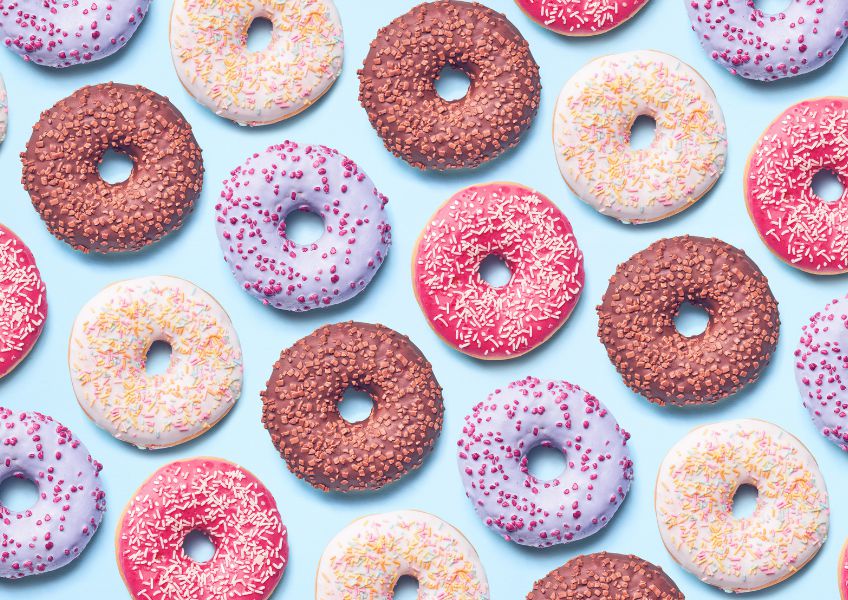High blood pressure, also known as hypertension, is a serious health condition that affects millions worldwide. In fact, it is even known as “the silent killer” because it can show few symptoms while causing severe health complications. While genetics and lifestyle factors play a role, diet has a significant impact on blood pressure levels. In this article, we’ll discuss the worst foods for high blood pressure and explore how dietary choices can influence this condition (1).
Understanding High Blood Pressure And Its Impact
It might seem difficult to understand high blood pressure, so we’ll break it down for you. High blood pressure occurs when the force of blood against the walls of the arteries is consistently too high. This condition strains the arteries and the heart, increasing the risk of heart disease, strokes, and kidney problems.
Uncontrolled high blood pressure can lead to serious health complications. It damages arteries, leading to atherosclerosis and increasing the risk of heart attacks. Additionally, it strains the heart, causing conditions like heart failure. Uncontrolled hypertension is also linked to kidney damage and cognitive decline.
> > Learn why people choose Bloodsyl™ for their hypertension needs- read reviews!
Foods To Avoid For Healthy Blood Pressure
There are a number of foods and nutrients known to increase blood pressure. Most foods, even the really unhealthy ones, are okay to consume in small amounts on occasion. In other words, we’re not telling you to stop eating anything that isn’t kale or quinoa; rather, we’re simply suggesting that you consume unhealthy foods less often, and/or in smaller amounts. Remember to consult with your doctor before making any big lifestyle changes.
- Salt: Sodium plays a critical role in regulating bodily fluids, but you know what they say about too much of a good thing. Processed foods, canned soups, and fast foods are often full of hidden sodium, which can raise your blood pressure. Reducing salt intake and choosing fresh, whole foods can help control blood pressure (2).
- Saturated and Trans Fats: Saturated and trans fats raise LDL cholesterol levels, increasing the risk of atherosclerosis. Foods high in these fats include red meat, full-fat dairy, and commercially baked goods. Opting for lean protein sources and healthy fats like those found in nuts and avocados can promote heart health.
- Sugar: Excessive sugar consumption can contribute to weight gain and insulin resistance, increasing the risk of high blood pressure. Sugars are often hidden in processed foods, sugary beverages, and even seemingly healthy items like yogurt. Choosing whole fruits and minimizing added sugars can be beneficial (3).
- Processed and Fast Foods: Processed and fast foods are the culmination of everything we just mentioned. Sure, they’re quick and easy, but they’re almost always stuffed chock-full of sodium, unhealthy fats, and sugars. Therefore, it’s a good idea to avoid them as much as you can. Planning and preparing your meals ahead of time can help you avoid the temptation of quick, easy, and unhealthy fast foods.
> > Garlique vs Bloodsyl™: which supplement is right for you?
Conclusion
Diet plays a pivotal role in managing and preventing high blood pressure. By avoiding excessive sodium, unhealthy fats, and added sugars, you can significantly reduce your risk of hypertension-related complications.
Empowering yourself with knowledge about the impact of your food choices is the first step toward better health. Making conscious decisions to opt for whole foods, lean proteins, and healthy fats can contribute to a lower risk of high blood pressure and its associated health issues. It may also be prudent to take dietary supplements to help lower your blood pressure, or even prescription medication, if your doctor recommends it.
High blood pressure is a serious condition that requires careful attention and proactive management, but that doesn’t mean you have to stress out over it. By understanding the role of dietary choices in hypertension and making informed decisions about what you eat, you can pave the way for healthier hearts and better lives.

